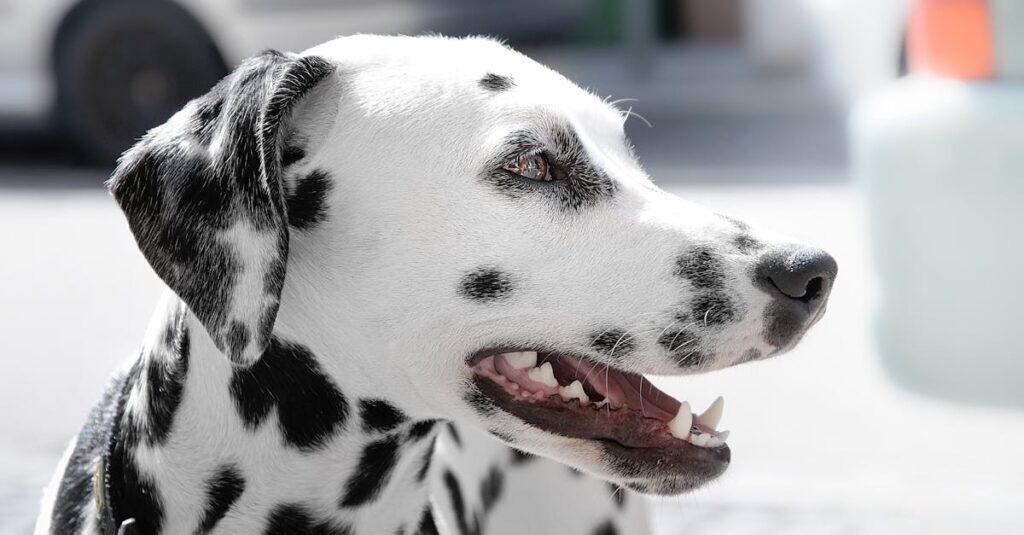Check how old is your pet in human years using our Pet Age Calculator.
When planning a getaway with your furry friend, you might notice that pet-friendly hotels often come with a higher price tag.
It’s a curious trend that leaves many pet owners wondering why they’re paying more for the privilege of bringing their pets along.
Understanding the reasons behind these costs can help you budget better and make informed choices for your travels.
Hotels that welcome pets typically face additional expenses, from specialized cleaning services to potential damages caused by our beloved companions.
These establishments often invest in amenities tailored for pets, enhancing the overall experience for both you and your four-legged family members.
In this article, I’ll dive into the factors that contribute to the higher rates of pet-friendly accommodations and offer tips on how to find the best deals without sacrificing comfort or convenience.
Table Of Contents
- 1 Why Are Pet Friendly Hotels More Expensive: Understanding Pet Friendly Hotels
- 2 Factors Contributing to Higher Costs
- 3 The Impact of Demand
- 4 How to Find Affordable Pet Friendly Hotels
- 5 Conclusion
- 6 Frequently Asked Questions
- 6.1 Why are pet-friendly hotels more expensive?
- 6.2 What types of pets are usually allowed in pet-friendly hotels?
- 6.3 How can I find affordable pet-friendly accommodations?
- 6.4 Are there special amenities for pets at these hotels?
- 6.5 Is there a rise in demand for pet-friendly hotels?
- 6.6 What should I consider when booking a pet-friendly hotel?
Why Are Pet Friendly Hotels More Expensive: Understanding Pet Friendly Hotels
Pet-friendly hotels cater to guests traveling with pets, allowing animals to stay in designated rooms. These accommodations often focus on enhancing the experience for both pets and their owners.
Definition of Pet Friendly Hotels
Pet-friendly hotels accept various types of pets, including dogs and cats, with specific policies in place. Facilities typically include features to ensure comfort and safety, such as pet beds, designated walking areas, and sometimes even pet-sitting services.
Rise in Popularity
Pet-friendly hotels have gained popularity due to the increasing number of pet owners. Over 67% of U.S. households own a pet, prompting hotels to adapt to this demand.
Many travelers now prioritize accommodations that welcome their pets, leading hotels to implement pet-friendly policies to attract a broader clientele.
This trend reflects a growing understanding of pets as part of the family, influencing consumers’ choices when planning trips.
Factors Contributing to Higher Costs
Several factors contribute to the increased expenses associated with pet-friendly hotels, primarily due to the need for more thorough services and amenities.
Additional Cleaning Requirements
Hotels accommodating pets face heightened cleaning demands. Pets often leave behind fur, odors, and other messes, necessitating more frequent and intensive cleaning processes.
Many hotels utilize specialized products for deep cleaning or fumigation between stays, which raises labor and maintenance costs. These extra efforts ensure a comfortable environment for all guests.
Insurance and Liability Concerns
The inclusion of pets introduces additional risks within hotel properties. Pets can potentially damage property or harm other guests, leading to increased insurance premiums.
Many hotels must invest in additional liability coverage to address these risks, impacting their operational expenses. This necessity adds to the overall costs passed on to guests.
Extra Amenities for Pets
Pet-friendly rooms typically feature specialized amenities to enhance the stay for both pets and their owners.
These amenities often include durable materials like laminate flooring, scratch-resistant furniture, and essentials such as waste bags, treat jars, or designated pet areas.
While these improvements ensure comfort, they require higher upfront investments and ongoing upkeep, further driving up the costs associated with pet-friendly stays.
The Impact of Demand
Demand for pet-friendly hotels has surged due to the increasing number of pet owners. Approximately 70% of U.S. households own pets, resulting in higher interest for accommodations that welcome our furry companions.
Trends in Pet Ownership
Trends show pet ownership has risen consistently, particularly in the U.S. Many pet owners consider their pets as family and invest more in premium goods and services, including travel accommodations.
Hotels respond to this trend by incorporating pet-specific amenities, such as water bowls, play areas, and grooming services, to enhance the guest experience.
These added services increase operational costs but create attractive offerings for traveling pet owners.
Consumer Willingness to Pay
Research suggests travelers with pets willingly pay higher rates for accommodations that cater to pets. Pet owners tend to stay longer, boosting revenue per booking, and often become loyal customers when their pets receive proper care.
Hotels justify premium pricing through pet fees that cover additional cleaning, maintenance, and the enhanced services provided.
This willingness to pay allows hotels to support valuable amenities and maintain their pet-friendly status, ensuring a thriving market for both guests and hotel operators.
How to Find Affordable Pet Friendly Hotels
Finding affordable pet-friendly hotels involves careful research and consideration of various factors.
By exploring specific resources and strategies, travelers can uncover suitable accommodations without breaking the bank.
Tips for Budget-Conscious Travelers
- Research pet policies: Examine pet fees, restrictions, and rules unique to each hotel to avoid unexpected charges.
- Look for hotels without non-refundable pet fees: Identify places that allow pets without upfront costs for better value.
- Verify restrictions: Confirm breed or size limitations to prevent booking errors and additional charges.
- Select locations wisely: Choose hotels near parks and pet-friendly eateries, which enhance convenience without extra costs.
- Read reviews: Check feedback from fellow pet owners to ensure compliance with advertised pet-friendliness and to uncover potential hidden fees.
Alternative Accommodation Options
- Explore vacation rentals: Sites like Airbnb often provide flexible pet policies, sometimes without extra pet fees.
- Consider pet-specific lodgings: Specialized inns or campgrounds designed for pets may offer lower rates and better amenities.
- Utilize house sitting arrangements: Engage in pet-sitting exchanges to stay at someone’s home while caring for their pets, allowing for significant savings on accommodations.
Key Takeaways
- Increased Expenses: Pet-friendly hotels incur additional costs related to cleaning and maintenance, which is reflected in their pricing.
- Amenities for Pets: These hotels often provide specialized pet amenities, requiring upfront investment and ongoing upkeep that contribute to higher rates.
- Surging Demand: A rise in pet ownership has led to increased demand for accommodations that allow pets, prompting hotels to adapt their services and pricing.
- Consumer Willingness to Pay: Pet owners generally show a willingness to pay more for pet-friendly accommodations, which supports hotels in offering enhanced services.
- Budget-Friendly Strategies: Travelers can find affordable pet-friendly hotels by researching policies, looking for waived fees, and reading reviews from other pet owners.
- Alternative Options: Consider vacation rentals or specialized lodgings that cater to pets for potentially lower pricing and better amenities.
Conclusion
Understanding why pet-friendly hotels are pricier helps me make informed travel choices.
The extra costs associated with cleaning and maintaining these accommodations are real and necessary for ensuring a safe and enjoyable stay for both pets and their owners.
As more people see their pets as family members it’s clear that the demand for these services will continue to grow.
By being aware of the factors that contribute to higher rates I can better navigate my options and find the perfect place for my furry friend without breaking the bank.
With a bit of research and flexibility I can enjoy a memorable trip that includes my beloved pet.
Frequently Asked Questions
Why are pet-friendly hotels more expensive?
Pet-friendly hotels often have higher costs due to increased cleaning demands, potential for damage, and added insurance liabilities.
Additionally, they may offer pet-specific amenities, which further drives up operational costs.
What types of pets are usually allowed in pet-friendly hotels?
Most pet-friendly hotels allow dogs and cats, though some may accept other types of pets, such as birds or rabbits. It’s important to check the hotel’s specific pet policy for any limitations.
How can I find affordable pet-friendly accommodations?
To find budget-friendly options, research pet policies and avoid hotels with non-refundable pet fees. Look for places near parks, read reviews from other pet owners, and explore alternatives like vacation rentals or pet-friendly inns.
Are there special amenities for pets at these hotels?
Yes, many pet-friendly hotels offer special amenities such as pet beds, feeding bowls, play areas, and even grooming services to make the stay enjoyable for your furry friends.
Is there a rise in demand for pet-friendly hotels?
Absolutely! Over 70% of U.S. households own pets, and more pet owners are prioritizing hotels that welcome their furry companions, reflecting a trend of treating pets as family during travel.
What should I consider when booking a pet-friendly hotel?
Consider factors like pet policies, any size or breed restrictions, additional fees, nearby pet-friendly parks or eateries, and reviews from other guests who traveled with pets.




